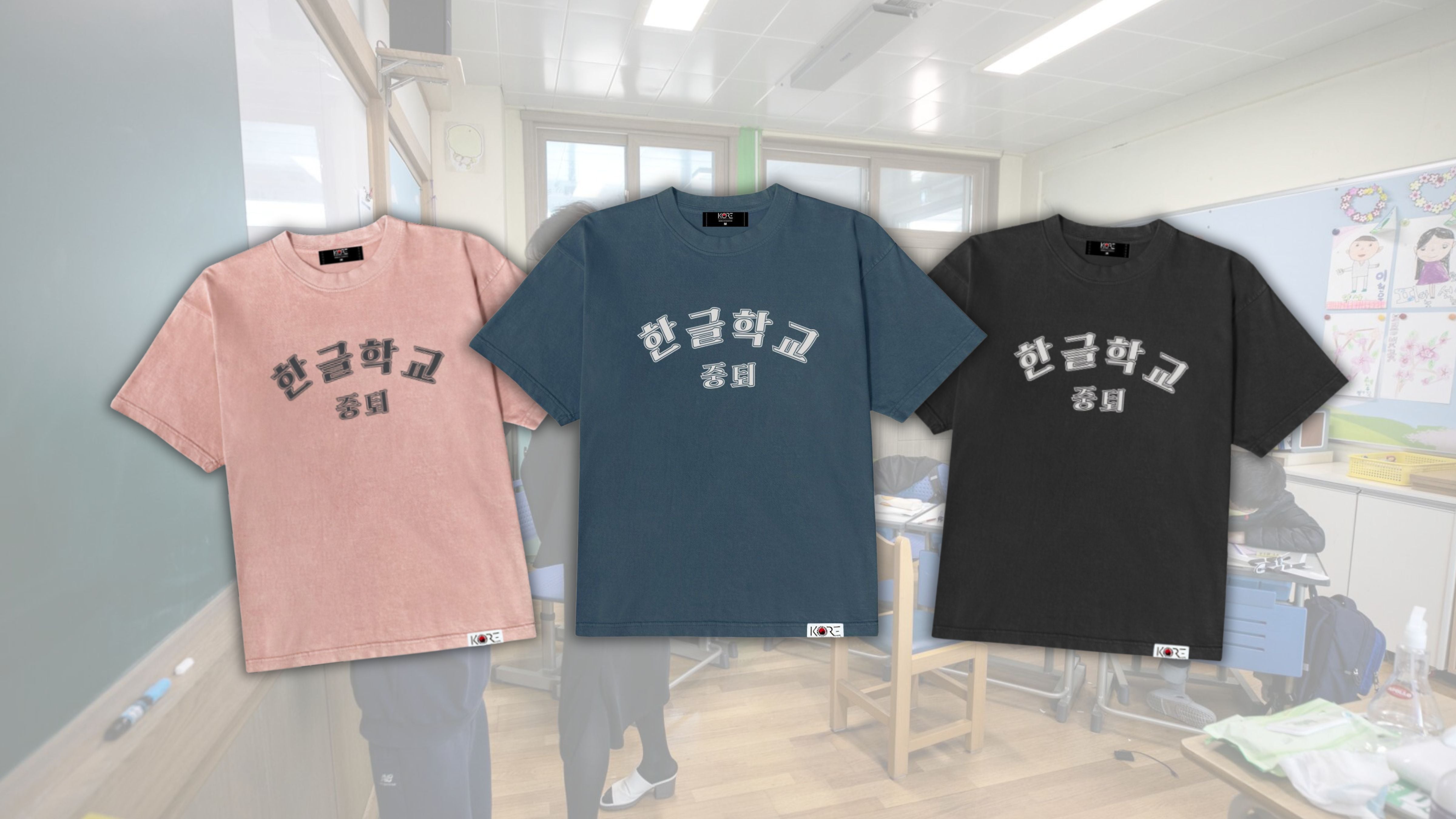If you grew up Korean American, your weekends were probably not your own. While friends slept in or watched cartoons, you were heading to 한글학교 weekend classes often held in churches, community centers, or borrowed classrooms, where kids learned Korean language.
Parents signed us up hoping we would maintain a connection to our heritage, understand Korean customs, and keep a cultural bridge alive between generations. For many of us, attendance became a routine, a responsibility, and sometimes a source of quiet dread.

Korean School in the U.S.
Korean language schools in the United States began in the 1970s as weekend programs designed to maintain language and culture while helping children navigate life in an American society. The classes offered more than reading and writing. Students could learn Korean calligraphy, martial arts, traditional dance, and culture alongside language lessons.

Students were grouped by language ability rather than age, creating classrooms where a kindergartner could sit next to a high schooler struggling to read. Despite these opportunities, older students often began skipping classes as American schoolwork, sports, and social activities became more demanding.
A Bridge Between Generations
Korean school was never just about academics. Teachers emphasized that the schools bridged communication gaps between children and their parents. Teenagers who primarily spoke English at school and home were given tools to converse in Korean, while parents who were not fluent in English gained insight into American school culture. Korean schools became a space where generations could meet halfway, where language was not only taught but practiced as a living connection between past and present.

Beyond the Classroom: Hagwons and Study Cafés
Many students also attended hagwons, private tutoring centers offering SAT prep, art, music, or additional language support. Families invested time and resources, prioritizing education even on weekends. Students learned to balance multiple commitments, often with minimal rest, cultivating a life of dual expectations.
For some, the routine extended beyond weekend mornings. After-school study sessions at cafés became a space to cram, chat, and quietly rebel against academic pressure. Part of the 카공족, or “café-study tribe,” students brought notebooks, pens, and a steady flow of coffee or tea. These sessions became another layer of the shared experience, blending discipline with subtle rebellion.
The Reality of Dropping Out
The truth is, most students never formally graduated.
Korean schools didn’t have a four-year track or traditional graduation ceremony. There were levels and certificates, but they rarely dictated whether students completed the program. Weekend mornings could feel long and demanding, and for many, stepping away from classes became inevitable.
Yet dropping out was never a failure. It became a shared rite of passage; a quiet acknowledgment of the challenge of balancing heritage, personal interests, and everyday Korean American life. Those who left still carried valuable lessons, fond memories of early mornings, and a sense of connection to a cultural community that stayed with them long after class ended.
Nostalgia, Humor, and Identity

The Korean School Dropout Tee is a playful nod to all those weekend mornings you’d rather have spent sleeping in. It brings back memories of quiet classrooms, the secret thrill of daydreaming instead of taking notes, and small victories of balancing heritage with everyday life. Even without formal completion, the experience mattered, and this tee celebrates that journey with humor, pride, and memory.
Wear it as a reminder of those moments and carry a little nostalgia wherever you go.



Leave a comment